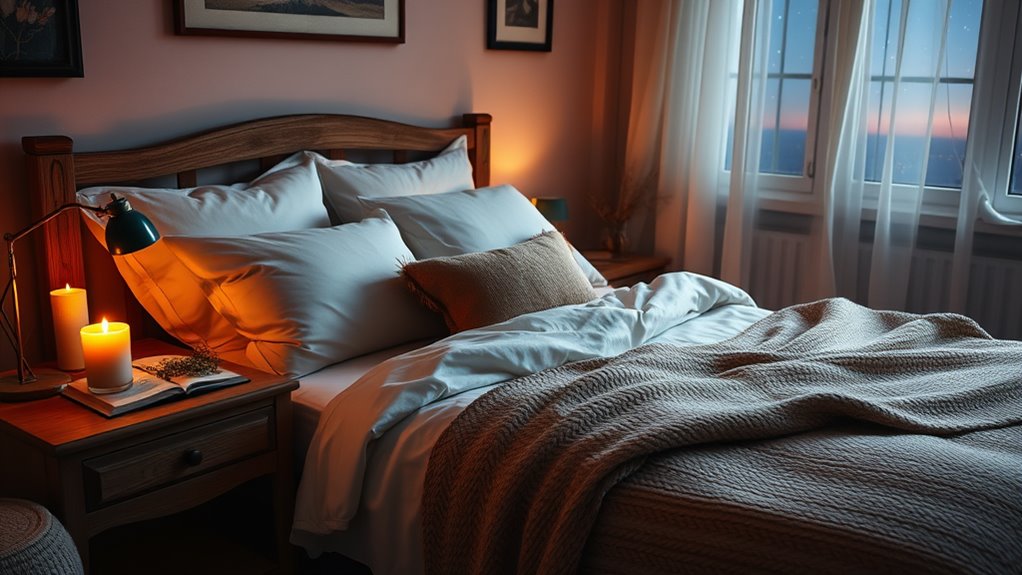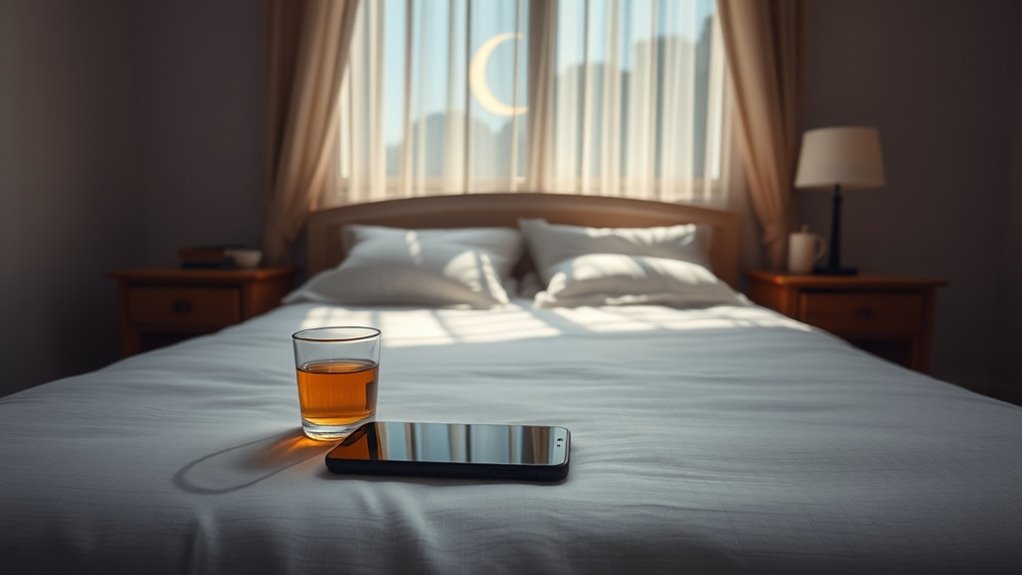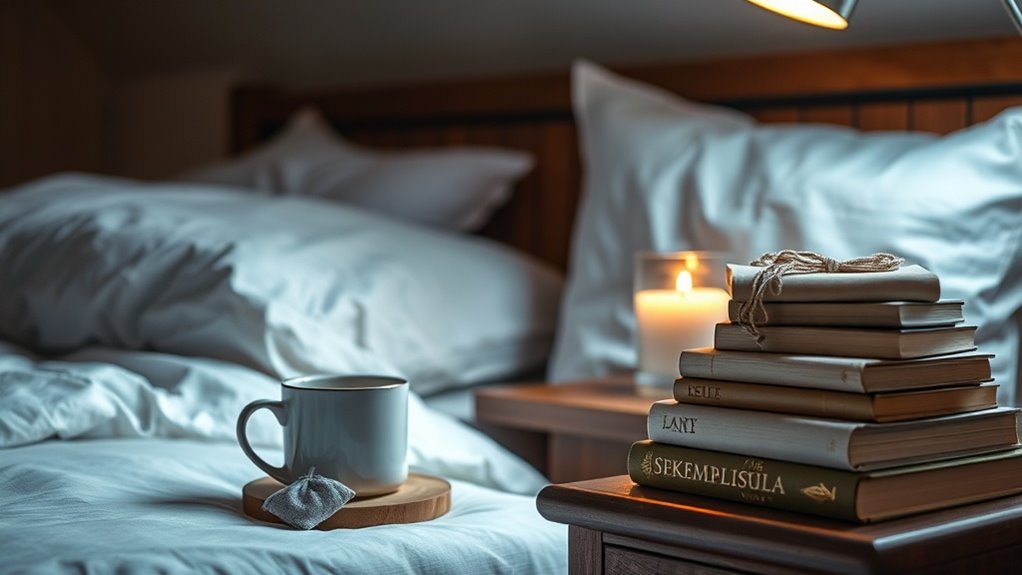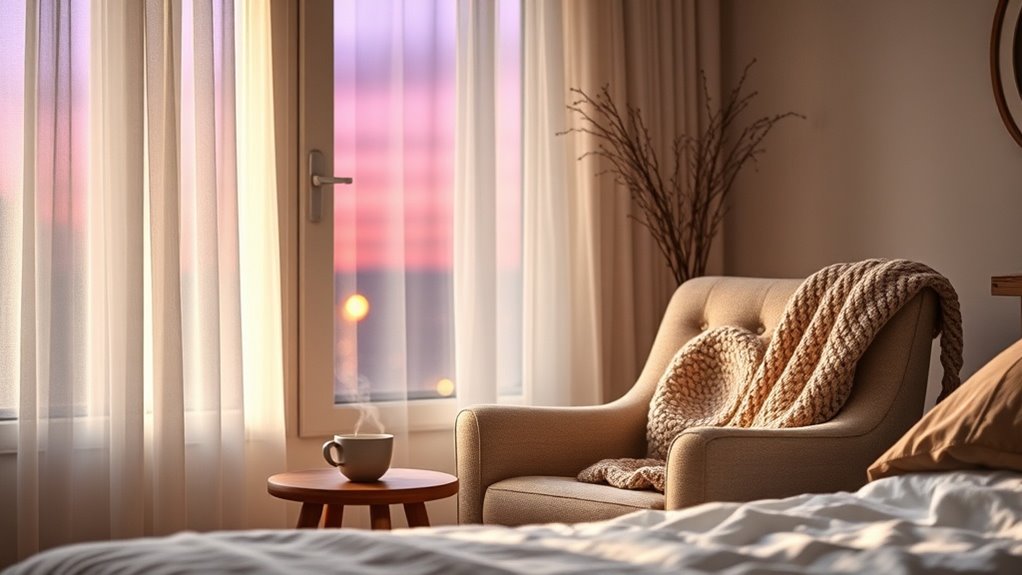My Bedtime Checklist for the Best Sleep Ever
Did you know that a consistent sleep schedule can significantly improve your overall sleep quality? Many people underestimate the power of routine, but establishing a regular bedtime and wake-up time can set the foundation for restorative rest. In addition to this, creating a relaxing pre-sleep routine and optimizing your environment are crucial steps. To uncover the specific strategies that can transform your nightly rest, let’s explore the essential components of an effective bedtime checklist.
Key Takeaways
- Set a consistent bedtime and wake-up time to regulate your internal clock for optimal sleep quality.
- Develop a relaxing bedtime routine, including activities like reading, gentle stretching, and meditation to signal your body to wind down.
- Optimize your sleep environment with a comfortable mattress, blackout curtains, and a cool temperature between 60-67°F for better rest.
- Limit screen time at least one hour before bed to avoid blue light disruption, using alternatives like physical books or meditation instead.
- Mind your diet by avoiding heavy meals close to bedtime, staying hydrated, and practicing deep breathing to promote relaxation.
Establish a Consistent Sleep Schedule
Establishing a consistent sleep schedule is crucial for improving your overall sleep quality.
To do this, set a specific bedtime and wake-up time, and stick to them every day, even on weekends.
This helps regulate your body’s internal clock, making it easier to fall asleep and wake up refreshed.
Keep a bedtime checklist to track your schedule and ensure you’re hitting your targets.
Include reminders for winding down and avoiding screens before bed.
Consistency is key; the more you adhere to your schedule, the better your sleep will be.
Prioritize this habit for lasting benefits to your health and well-being. Additionally, incorporating a simple five-minute night routine can enhance your ability to unwind before sleep.
Create a Relaxing Bedtime Routine
How can you create a soothing atmosphere that signals your body it’s time to wind down? Start by establishing a relaxing bedtime routine. Consider these activities to help you transition into sleep:
| Activity | Duration | Benefit |
|---|---|---|
| Reading a book | 20 minutes | Reduces stress |
| Gentle stretching | 10 minutes | Relaxes muscles |
| Meditation | 15 minutes | Calms the mind |
Incorporate these practices consistently, and you’ll signal your body that it’s time to relax. Remember, a calming routine sets the stage for restorative sleep. Establishing a relaxing bedtime routine can significantly enhance your sleep quality and lead to better sleep tonight.
Optimize Your Sleep Environment
What elements in your bedroom can enhance your sleep quality?
Start with your mattress and pillows; ensure they’re comfortable and supportive.
Consider blackout curtains to block out light and create a dark, serene environment.
Maintain a cool temperature—ideally between 60-67°F—as cooler rooms promote better sleep.
Also, reduce noise with sound machines or earplugs if necessary.
Keep your bedroom tidy and free of clutter to foster a calming atmosphere.
Finally, use calming scents like lavender for additional relaxation. Incorporating nightly rituals can significantly enhance your ability to unwind before sleep.
Limit Screen Time Before Bed
Limiting screen time before bed is crucial for a good night’s sleep. The blue light emitted by devices can interfere with your body’s natural sleep cycle, making it harder to fall asleep. Instead of scrolling through your phone, consider alternative evening activities and set a digital curfew to help you wind down. Engaging in a simple evening routine can also significantly enhance your relaxation and prepare your mind for restful sleep.
Effects of Blue Light
Have you ever noticed how staring at your phone or tablet before bed affects your sleep?
That’s because screens emit blue light, which can disrupt your circadian rhythm.
This light tricks your brain into thinking it’s still daytime, making it harder to fall asleep.
Studies show that reducing blue light exposure in the evening can significantly improve your sleep quality.
Try to limit screen time at least an hour before bed.
Instead, consider dimming your lights or using blue light filters on your devices.
Prioritizing this simple change can lead to deeper, more restorative sleep and better overall health.
Alternative Evening Activities
To enhance your evening routine and improve sleep quality, consider engaging in alternative activities that don’t involve screens.
These activities can help you unwind and signal to your body that it’s time to rest.
Here are some effective options:
- Read a physical book or magazine
- Practice gentle yoga or stretching
- Enjoy a warm bath or shower
- Meditate or try deep breathing exercises
- Write in a journal to reflect on your day
Incorporating these activities into your evenings allows you to disconnect from technology and promotes a more restful night’s sleep.
Give them a try for better rest!
Establishing Digital Curfews
Why is it crucial to establish digital curfews before bedtime?
Limiting screen time before sleep helps your brain wind down and prepares your body for rest.
The blue light emitted by devices can disrupt melatonin production, making it harder to fall asleep.
Aim to disconnect at least an hour before bed.
Instead, engage in calming activities like reading or meditating.
Set specific times for device use and stick to them; consistency is key.
By prioritizing your digital curfew, you’ll improve sleep quality and overall well-being.
Mind Your Diet and Hydration
To ensure a good night’s sleep, avoid heavy meals right before bedtime. Eating too much can lead to discomfort and disrupt your rest. Also, make sure you’re properly hydrated throughout the day, but limit fluid intake in the evening to prevent late-night trips to the bathroom. Additionally, maintaining a balanced diet can significantly improve your overall sleep quality.
Avoid Heavy Meals
While winding down for the night, it’s crucial to pay attention to your meal choices, as heavy meals can disrupt your sleep quality.
Eating late can lead to discomfort and indigestion, making it harder to fall asleep.
To ensure a restful night, consider these tips:
- Opt for lighter meals in the evening.
- Aim to finish eating at least 2-3 hours before bedtime.
- Choose easily digestible foods like vegetables and lean proteins.
- Limit spicy or fatty dishes that can upset your stomach.
- Avoid excessive sugar, which can lead to energy spikes.
Making mindful choices will enhance your sleep experience.
Stay Hydrated Properly
After managing your evening meals, the next step in promoting better sleep involves staying properly hydrated.
Drinking enough water during the day is crucial, but you should limit intake right before bedtime to avoid nighttime trips to the bathroom.
Aim for around 8 cups of water daily, adjusting based on activity levels and climate.
Also, be mindful of caffeine and alcohol, as they can dehydrate you and disrupt sleep patterns.
Incorporating hydrating foods like fruits and vegetables can also aid your hydration.
Practice Relaxation Techniques
As your day winds down, practicing relaxation techniques can significantly enhance your ability to unwind and prepare for restful sleep.
Incorporating these strategies into your nighttime routine can help calm your mind and body.
- Deep breathing exercises to slow your heart rate
- Progressive muscle relaxation to release tension
- Guided imagery to visualize a peaceful scene
- Gentle stretching or yoga to ease physical stress
- Meditation or mindfulness to center your thoughts
Additionally, try incorporating a soothing breathing exercise that combines principles of breathing and meditation to further enhance your sleep quality.





